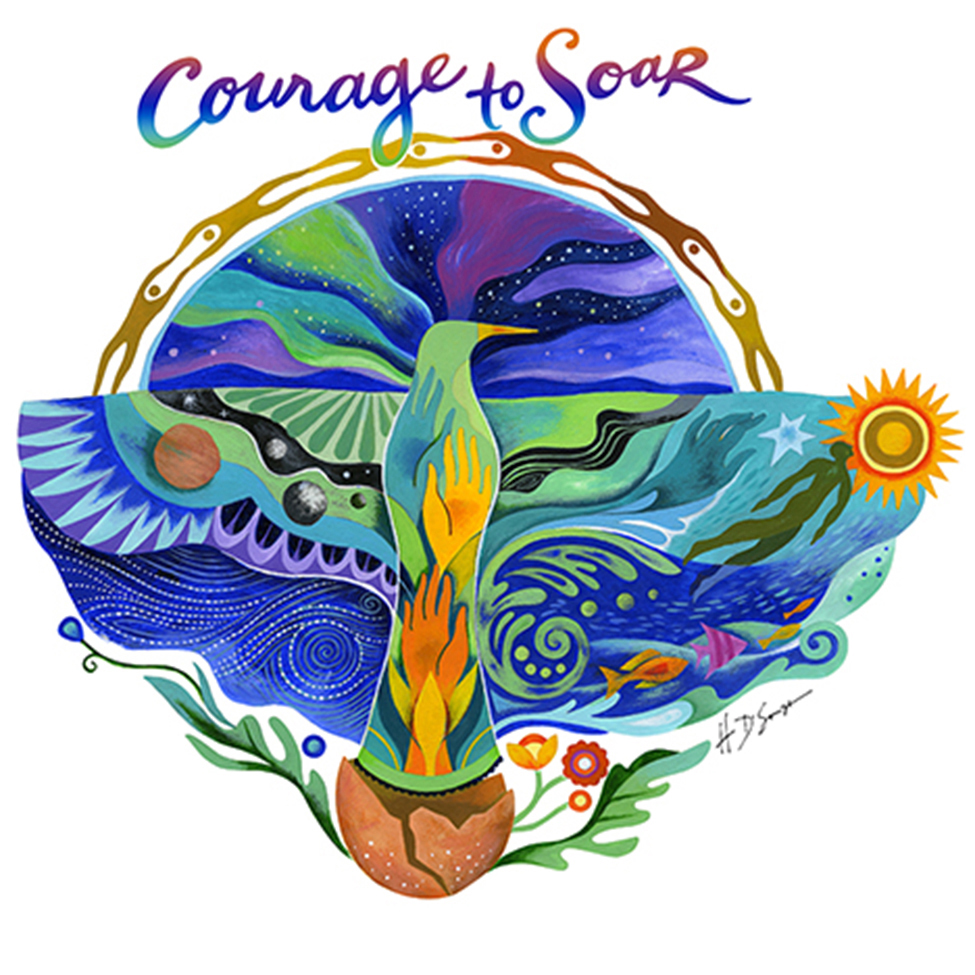

Thank you for the opportunity to be your AACN president!
I’ve been blown away by how our theme touched so many of you this year. How the message – vulnerability is not weakness – resonated and landed. How it stirred you to connect with me and share how you recognized and owned the Courage to Soar in your own lives.
As I traveled the country, virtually and in person, meeting AACN chapter members and a community of bold, brilliant nurses, you gifted me with your own stories and what you discovered on the other side of courage.
Courage starts with vulnerability.
Here’s a hard truth: Leaders who refuse to show vulnerability aren’t strong — they’re fragile.
I’ve discovered that real leadership is being able to say, “I don’t know, but let’s figure it out together.”
I see vulnerability as a starting point for the courage to uncover a new path or fresh opportunity.
How do you reframe vulnerability as strength? Here are three steps I use:
- Turn failure into fuel. After a setback, I ask, What did I learn that will make me stronger? What can I do to avoid, or at least minimize, failure in the future? Fear of failure is a powerful paralyzing agent, isn’t it? I adjust my viewpoint to see fear as fleeting and failure as success fuel.
- Own your gaps. It’s about self-awareness and ownership of your strengths and weaknesses – about honest acknowledgment of the gaps in your skills, knowledge or experience. It's about actively working to close those gaps. I try to admit when I don’t have the answer. It invites others to step up, contribute and sharpen their own skill set.
- Encourage risk-taking. We try to avoid risks when caring for patients. But we need to think differently to advance our practice and enhance outcomes. We need to encourage bold ideas and praise effort, not just perfect execution.
The future belongs to those who embrace empathy, vulnerability and belonging.
Empathy is a competitive advantage. Empathy requires an open mind and active listening to establish a genuine connection with that person.
For years, healthcare institutions have made efficiency a priority over connection. It turns out that efficiency is no longer a human advantage. AI works faster and doesn’t experience burnout.
Empathy remains a distinctly human skill:
- Ditch Performative Listening: Stop nodding along while thinking of the next thing you need to do. Pay attention. Ask deeper questions. Listen to understand.
- See the Person, Not Just the Work: When you interact with colleagues, offer support, not assumptions.
- Acknowledge Pain: Do you feel pressure to be a fixer? Sometimes, the most powerful thing you can say is, “I see you. I hear you. You’re not alone.”
- Belonging Is Essential: Remember Maslow’s hierarchy of human needs? Belonging is only surpassed by physical and safety needs.
Seeing, hearing and supporting others is the gateway to advocacy. Advocacy is at the core of nursing and the backbone of AACN’s job as a national organization.
Advocating for patients and families includes speaking up for them when they can't express their needs. Advocacy is about ensuring that ethical treatment and full access to care are available for all.
We must also advocate for ourselves and our peers, achieving a balance that is crucial to sustaining a fulfilling and long-lasting career in nursing.
A critical aspect of strengthening nursing is to mentor and champion each other.
Mentorship fosters confidence, professional growth and resilience. It supports new-to-practice nurses as they transition smoothly into their roles while avoiding burnout.
Hospitals and other healthcare institutions need to invest in formal mentorship program that pair seasoned professionals with newcomers to foster skill development, emotional support and professional guidance.
Nurses at every stage of their career are the heart and soul of healthcare in communities everywhere.
Last year, a national blueprint proposed new principles to measure what nurses do. It pointed out how nearly 34 million people receive care from acute and critical care nurses every year.
You touch so many lives every day. You create healing environments. You prevent complications. You build relationships with patients and families. And you do it with purpose.
And yet, we often struggle with system barriers that devalue our work.
We’ll say it again and say it until we’re heard: Nurses are an investment, not a line item in the budget!
Recognizing the value of nursing and investing in nurses leads to sustainable, high-quality healthcare systems.
It will take courage to enact the systemic changes we need to ensure nurses are empowered, respected, adequately supported and compensated in our essential role in transforming patient care.
On the other side of courage, I found the gift of being your AACN president. A gift I will always remember and can never begin to repay. But I promise to keep advocating for our profession, nurses, patients and community. I promise to continue being a mentor. I can promise to continue being courageous and vulnerable in the eyes of adversity.
Now, what will you find on the other side of courage? An opportunity to grow, learn, evolve, advocate?
Maya Angelou said, "Do the best you can until you know better. Then, when you know better, do better."
So, now that you know better … what will you do next?
What will you do better? What challenge will you face? How will you continue to soar? Email me at couragetosoar@aacn.org.